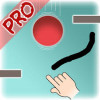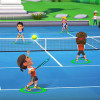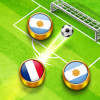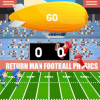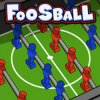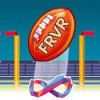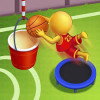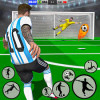Ping Pong Classic
About Ping Pong Classic
Ping Pong, also known as table tennis, is a classic indoor sport that has captivated players and enthusiasts worldwide for generations. Ping Pong Classic is a game that continues to bring joy, competition, and camaraderie to players of all ages and skill levels. In this article, we'll explore the enduring appeal and key elements of this beloved game.
- History and Origins
Ping Pong, or table tennis, has a rich history that dates back to the late 19th century in England. It initially began as an indoor version of lawn tennis, using household items like books as makeshift paddles and rounded corks as balls. Over time, the game evolved with standardized rules and equipment, leading to the establishment of international governing bodies like the International Table Tennis Federation (ITTF). Today, Ping Pong Classic preserves this rich heritage while introducing new generations to the sport.
- Equipment
Ping Pong Classic relies on minimalistic yet essential equipment, making it accessible to a wide range of players. The game requires a table tennis table, a net, two paddles, and a lightweight ball. The quality and specifications of these items, from the table's surface to the rubber on the paddles, are crucial in ensuring fair and competitive play.
- Gameplay
The rules of Ping Pong Classic are straightforward yet provide endless opportunities for skill development and strategy. Players take turns serving and returning the ball over the net, aiming to score points by hitting the ball within the opponent's designated side of the table. The game demands quick reflexes, precision, and agility as players engage in fast-paced rallies, delivering smashes, spins, and finesse shots to outmaneuver their opponents.
- Skill Development
Ping Pong Classic offers a platform for players to continually improve their skills. Mastery of various strokes, including forehand and backhand drives, loops, chops, and spins, allows players to execute a wide range of shots with precision and control. As players advance, they refine their strategies, learning to anticipate their opponent's moves and exploit weaknesses.
- Physical and Mental Benefits
Beyond its recreational aspect, Ping Pong Classic provides numerous physical and mental benefits. The game enhances hand-eye coordination, reflexes, and balance. It also promotes cardiovascular fitness and sharpens cognitive skills such as concentration, decision-making, and problem-solving. Moreover, Ping Pong is a social sport that fosters connections and friendly competition among players.
- Competitive Play
Ping Pong Classic offers a competitive environment for players to challenge themselves and others. Local and international tournaments, including the Olympic Games, showcase the highest level of table tennis talent. Competitive players dedicate hours to training, honing their skills, and mastering the art of winning points with precision and flair.
Conclusion
Ping Pong Classic, the timeless game of table tennis, continues to captivate players and enthusiasts worldwide. Its rich history, simple yet challenging gameplay, and physical and mental benefits make it a beloved pastime for people of all ages. Whether you're playing casually with friends or competing at a professional level, Ping Pong Classic offers an enduring and delightful experience that has stood the test of time.
How to play
Using Mouse and Keyboard


